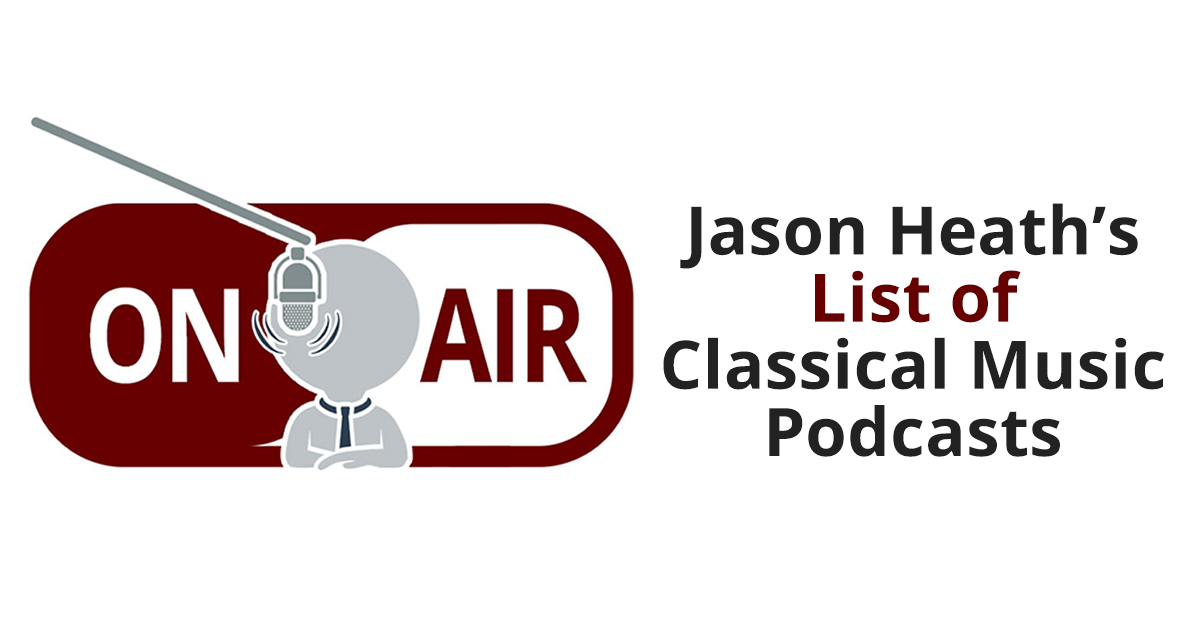Things aren’t looking too good for the future of music criticism at traditional media outlets. Last week, the major newspapers in Atlanta and Minneapolis announced that they are doing away with their full-time music critics. Nevertheless, could orchestras have actually been a contributing factor behind these recent cuts…
Even though this seemingly fundamental shift in classical music coverage may be attracting attention due to the timing of events in Atlanta and Minneapolis, some of those inside the business have seen the storm brewing for some time. I remember talking to a music journalist friend of mine not long ago and I mentioned that a full-time music critic position in a major paper may be opening soon.
His reaction caught me completely off guard: he shrugged and said something along the lines of thanks, but I don’t know if I really want a job at a major paper, I don’t think they are going to be a big part in the future of cultural journalism. We went on to chat about the topic a bit more and I learned that although he thinks some of the biggest and most established institutions will retain a full-time classical music critic and/or cultural reporter, he didn’t think the newspapers in other markets, even big markets, would fare as well. Apparently, he knows precisely what he’s talking about.
There is no denying that decreased full-time coverage of classical music events will only make the job of reaching existing and potential patrons more complicated. At the same time, I have to wonder how much orchestras have contributed to the editorial decisions behind these recent cuts.
Keep in mind, this isn’t a universal statement, however, this isn’t exactly a new topic either. This was first addressed back in an article I published from January, 2006 entitled Getting Over Our Bad Selves. Instead of trying to make the same points over again, I think it is more useful to reprint the relevant material from that article:
A great deal of the trouble behind limited editorial support for classical music commentary is the mixed messages they receive from external sources; in essence, there isn’t a good environment for most editors to support increased classical music coverage. Although there are some issues which are internal by nature, there are a number of external issues which contribute to this poor environment.
To begin with, the lack of positive feedback for publishing articles outside of the benign concert review is a sincere issue. When people take the time to write to an editor about these articles it’s usually with a complaint. They receive complaints from readers who don’t like the particular subject material covered when there are other “important” issues out there. For example, the classical music enthusiasts who write in to complain that reporter “X” took the time to write about composer “Y” when they should have been writing about composer “Z” and how dare they do that.
To make matters worse, classical music professionals contribute to the problem by hitting the editors from the other direction. I can’t tell you how many reporters and editors I’ve talked to who tell me about instances when the executive and/or board leaders from their respective orchestras have taken the time to show up at the newspaper offices or called them to complain about a “negative” piece the paper published. Unfortunately, these perceived transgressions are the result of the attitude adopted by most orchestral organizations that if it’s not a 100% good news puff-piece then it must be an “attack”.
As a result, many orchestra professionals don’t realize the damage they do when complaining about this “negative” coverage; all they’re doing is showing editors why it isn’t worth their time to support expanded classical music coverage in the first place. These executives may think they are applying some pressure to get what they want but more often than not their efforts boomerang by resulting in less overall coverage. This happens because when the majority of feedback directed toward editors is complaints from readers about how bad their existing articles are and complaints from orchestra executives they determine that it’s better to simply cut back on coverage to the point where most non-concert review classical music articles are coming across like CNN news crawlers.
In the end, although the recent cuts to full-time classical music coverage will undoubtedly come at great costs; one potential silver lining is that orchestras will have no alternative but to find new ways to connect with their public. As a result, the old adage necessity is the mother of all invention may result in the discovery of some new and wonderful ways for orchestras to reach their audience. Or at least I hope so…



You must know that the S.F. Chronicle is negotiating a major reduction in staff right now. I fear for Joshua Kosman’s job; it would be way too easy for them to throw more music reviews to Steve Winn (who is very good with opera) and free-lancers.
The way to get rid of classical music is first to reduce it to triviality.
When WNCN-FM in New York switched one midnight from the Beethoven 9th to “Roll Over Beethoven,” the listeners rose up, and Starr Broadcasting (owned by William F. Buckley) was forced to return to classical programming. Starr then slowly throttled it eventually playing single movements of bad baroque. No one cared when the ghost of WNCN switched to rock.
The powers that be learned their lesson. WNYC has systematically decreased classical music programming. Classical 24 hours on FM (and talk on AM) became “News and talk all day, classical music all night.” Every live and interesting music program is now gone: Performance Today, Pipe Dreams, From the Top, Steve Post in the morning. The method is to switch the show to an impossible hour — usually 6:00 am on Saturday, and then drop it because “no one listens.” They just made the same move with St. Paul Sunday, so we know that it will soon be gone.
In my opinion, the New York Times is doing the same. Their classical critics are truly dreadful. The reviews are 80% my-eyes-glaze-over stuff cribbed from the program notes and single-word descriptions of the performance — “John Smith displayed a powerful baritone,” “Jane Jones, a sweet-toned violinist.”
While we can’t expect the reincarnation of Bernard Shaw, the New York Times has enough prestige find a critic like Mark Swed, who always has something interesting to say. Their rock critics wouldn’t last a month with the kind of verbal ectoplasm we get from the classical critics — a sign that they will soon fade away.
To keep the standards up in music or any of the arts, one needs to have fora where artistic ideas can be discussed and argued. When criticism is lacking, the discussion falters, and we get “pablum,” or what is mediocre. It’s happened to visual arts in markets outside of the biggest cities, and it could happen to music, especially affecting contemporary composers and thwarting younger, upcoming artists beginning their careers. The Corporate takeover trend of newspapers has a definite anti-cultural bias to it: Art’s messages are “uncontrollable” because they originate in the spiritual and are, thus, threatening to materialists.
It’s the baby boomers man.
Just because they listened to only Dylan, Beatles, Stones (how appropriate) they think no-one cares about classical.
They’re wrong, classical is cool, just ask iTunes and it’s more extensive by day classical library.
Let’s leave these boomer values behind and embrace good music, classical, rock, electronic, who cares.
And enough about elitism. How many classical musicians are elitist? Damn, we wouldn’t survive six minutes with an elitist attitude.
You know, I’m not too sure what a music critic does anymore. The best reviews come from people like Alex Ross of The New Yorker. But, of course, he has a generous amount of space to work with. But when I read music criticism in papers like the New York Times or the Montreal Gazette, they are really, simply put, bad. One wonders why the typical newspaper critic even exists. A day or two after the concert is done, a subjective — typically hypercritical — summary in prose that is esoteric and often far removed from the casual or serious concert attendee. Rather than give such readers a head up on a soon-to-come concert and assist the concert goer in understanding that which is to come, the “critic” is basically not writing to the public, but instead, writing to the conductor or the performer. Frankly, I don’t think many critics deserve the print space that they are given. They should simply write letters of criticism to the performers/conductor/composer. That is why Alex Ross is so very good at what he does. He educates, expounds and criticizes in an intelligent way.
Oh well…
Joe,
Critics are writing to their audience, not to performers. The audience of a daily newspaper is different than the one reading the New Yorker, uses the publication for different reasons, and therefore they acquire different functions.
A daily newspaper covers the daily news, the who, what, when and where, from the G8 summit to the Carnegie Hall debut. The New Yorker exists to put all of that in more perspective and has readers who are going to spend more time with it. That’s why it comes out every week, instead of every day. Most good critics try to educate and put some perspective into the daily newspaper review, as they should, but they are also trying to give a sense of the ongoing, vital, daily concert life of a city. Comparing magazines to newspapers is inexact in the extreme.
Most American classical music critics at newspapers exist in a vacuum where they’re the only game in town and it’s very difficult for them to come out strongly against the local orchestra or arts institution. It’s biting the hand that feeds them in effect. As a result, this unfortunately makes critical writing pretty safe and non-partisan. They can’t come out with the kind of impassioned critique (positive or negative) that you’ll find in London, for instance, where there are numerous critics going head to head over the latest LSO concert…